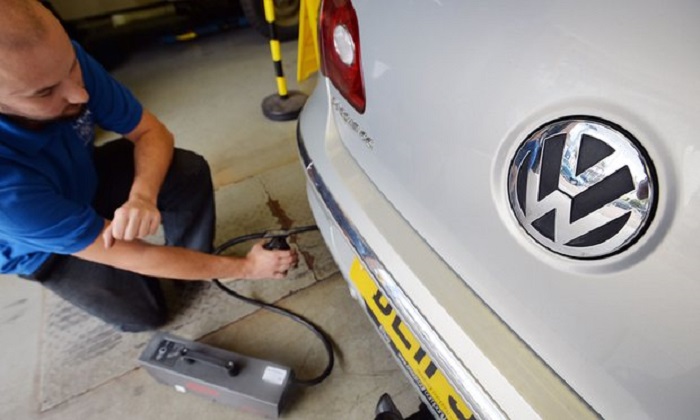Better vehicle emissions standards are seen as a crucial way to cut that pollution. Since the VW emissions scandal, campaigners and governments have raised concerns about the sometimes huge discrepancies between emissions in lab tests compared to those on the road.
“Most worrying is [that] the gap between what we find in the lab and on the ground is growing,” Rob de Jong, a transport expert at the UN Environment Programme, said at an environmental summit of more than 170 countries in Nairobi.
“Laboratory test results are increasingly unreliable or not reflective of vehicles. This gap is very worrisome because it’s eating away at the progress we are making.”
A recent UK government test of 37 diesel vehicles showed 97% emitted more nitrogen oxide pollution than the official limit, with many producing at least six times the limit.
But de Jong said that he did not think the sort of deliberate cheating undertaken by VW – separate to the gap between test results and the real world – was widespread among carmakers. “The majority I think are still in line with what is asked of them,” he said.
A new UN report, published on Tuesday, identified cleaner cooking stoves, better vehicle standards, greater use of renewable energy for power generation, more electric cars, public transport and controls on waste burning as key ways to cut air pollution, which is estimated to cause more than 7 million premature deaths annually.
“There is a global and increasing pandemic. The global response is not yet up to speed to turn that increase into a decrease,” said de Jong, of the 8% rise in pollution reported by the WHO.
“Wherever you live on this planet, air quality is something that needs our attention,” said Achim Steiner, Unep’s executive director, who added that the WHO data was a reminder that many cities and regions fail to even measure air pollution, let alone tackle it.
Steiner announced that UNEP was installing seven low-cost air pollution monitors in Nairobi, where it is headquartered, developed with technology companies around the world, which will cost less than $2,000 each rather than the $100,000 for a similar, conventional monitoring station.
More about:
















































